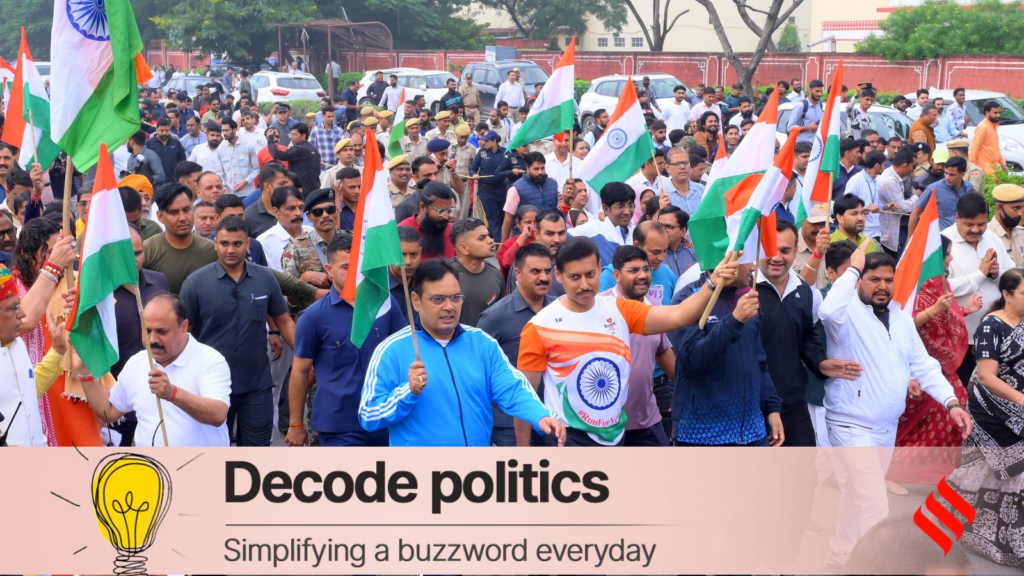The Bhajan Lal Sharma-led BJP government in Rajasthan is set to bring in an ordinance to amend the Rajasthan Panchayati Raj Act and the Rajasthan Municipalities Act to drop the provisions that disqualify individuals having more than two children from contesting panchayat and urban local body polls.
The amendment is likely to come into effect before the coming local polls in the state.
Here is why the government decided to do away with the policy and the likely implications of the move:
What is the two-child policy?
On November 27, 1995, the Rajasthan Assembly amended Section 19 of the Rajasthan Panchayati Raj Act, 1994 and Section 24 of the Rajasthan Municipalities Act, 2009, barring individuals with more than two children from contesting rural local body and urban civic body elections.
According to Section 19 of the Rajasthan Panchayati Raj Act, “Every person registered as a voter in the list of voters of a Panchayati Raj Institution shall be qualified for election as a Panch or, as the case may be, a member of such Panchayati Raj Institution unless such person has more than two children.”
The corresponding provision in the Rajasthan Municipalities Act states, “A person, notwithstanding that he is otherwise qualified, shall be disqualified, for being chosen as or for being a member of a Municipality if he or she has more than two children.”
Both laws explicitly state that individuals who had a third child before November 27, 1995, will be exempt from disqualification.
Story continues below this ad
The state has similar laws in place for the appointment of government employees, according to which they stand disqualified for having more than two children.
Why was the two-child policy introduced?
Rajasthan implemented the rule with family planning in mind. The rising population was a big issue, especially in rural areas where people had more children in anticipation of bearing a male child, three decades ago. Similar policies exist in states such as Madhya Pradesh, Gujarat, among others.
Why does the government want to rescind the policy now?
State Urban Development and Housing Minister Jabbar Singh Kharra told The Indian Express that the demand to relax the rule existed in rural areas.
“The state government has already relaxed similar rules regarding the promotion of employees. When they are given relaxations, public representatives also deserve it. The issue has also come up several times in the Assembly. It is the need of the hour,” he said.
Story continues below this ad
What may be the broader impact of the latest move?
Rights activists say the move may lead to more pressure on women, especially in rural areas, to have more children. “When the law was first introduced, we opposed it as, at the time, the decision on the number of children was not the woman’s but her parents-in-laws’ and the husband’s,” said Nisha Siddhu, general secretary of the National Federation of Indian Women.
Claiming that in today’s day and age, families even in rural areas do not have more than two to four children, she questioned the timing of the move. “The BJP has been encouraging Hindus to have more children and the move could be influenced by that,” she said.
While it is widely expected that government employees will demand a similar relaxation, Kharra argued that a public representative’s term is restricted to five years, unlike the employment tenure of a government servant.
What has the Opposition Congress said?
With some of its MLAs raising the demand of rescinding the policy, the Congress has not objected to the move, indicating that some of its own rural leaders stand to benefit from it.
Story continues below this ad
“The policy was introduced by BJP CM Bhairon Singh Shekhawat. The BJP must clarify why they want to backtrack on its own decision now,” said Congress spokesperson Swarnim Chaturvedi.


